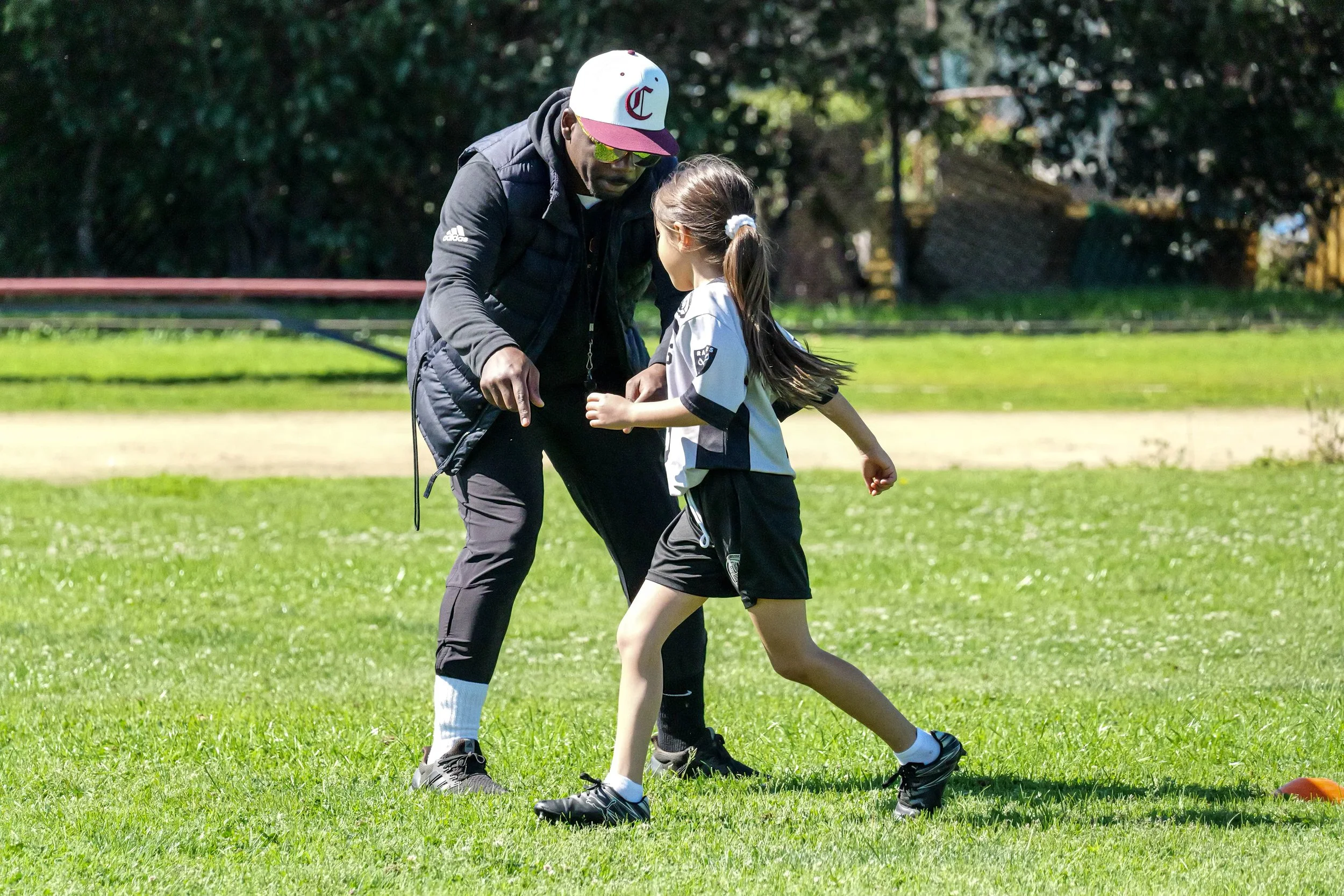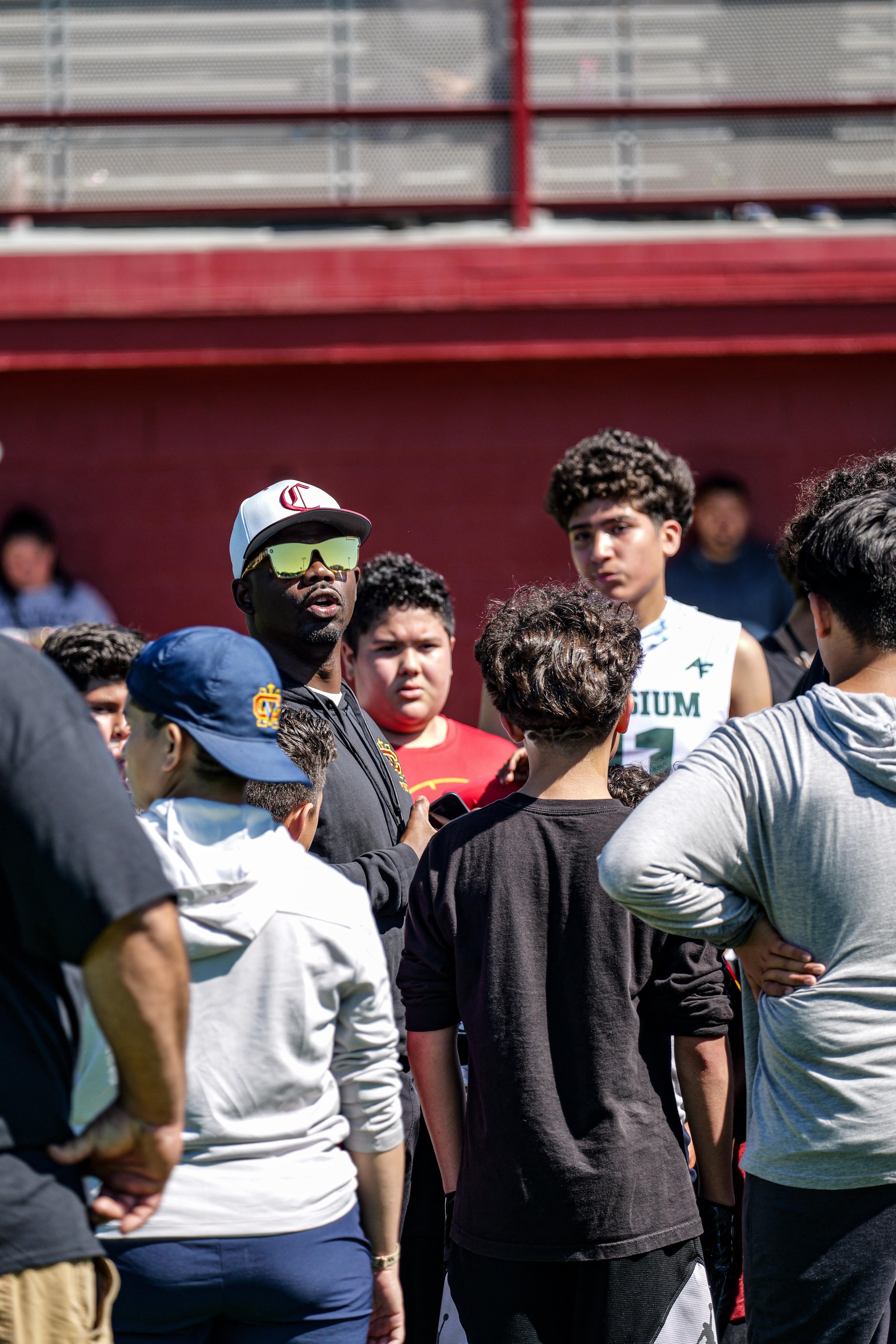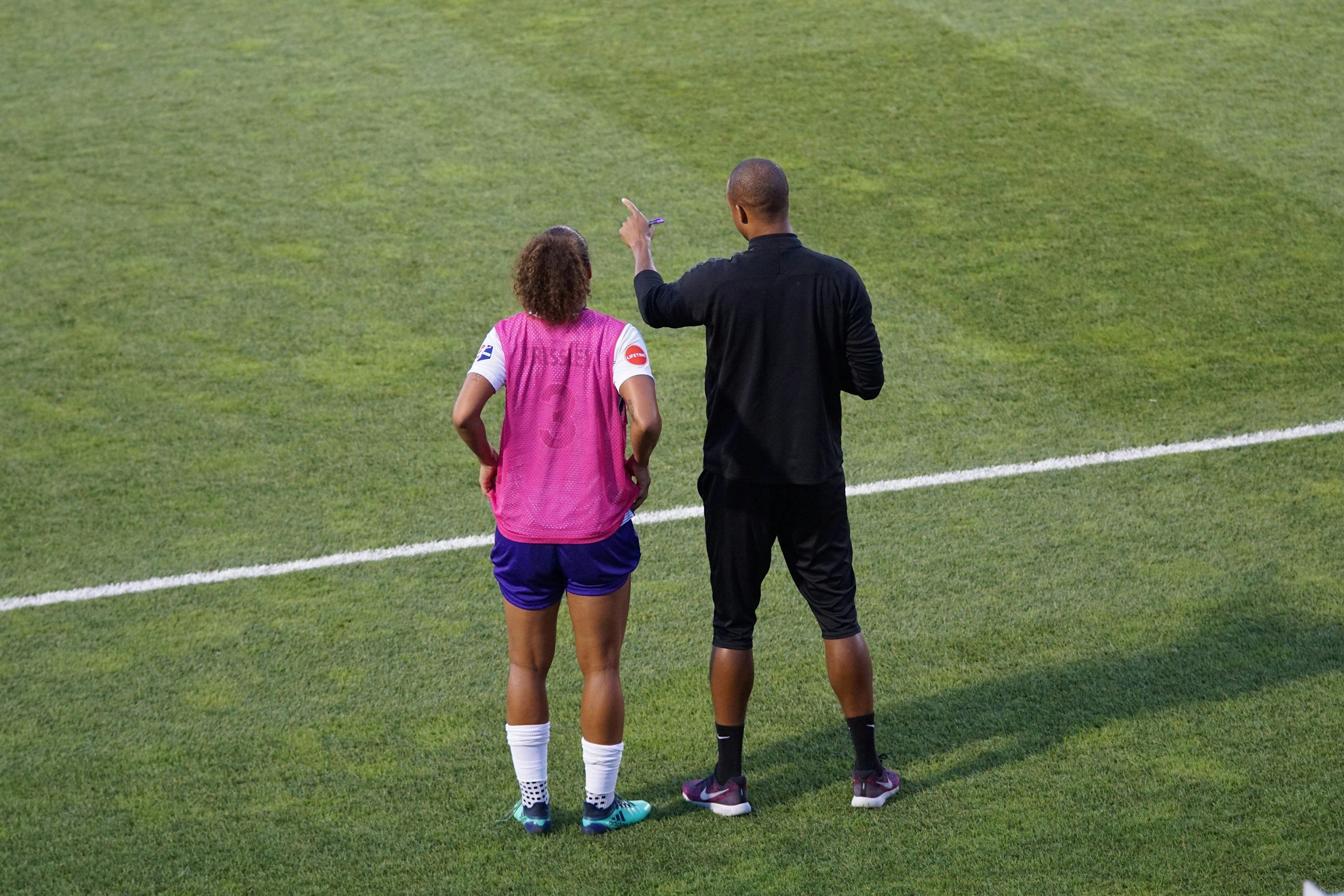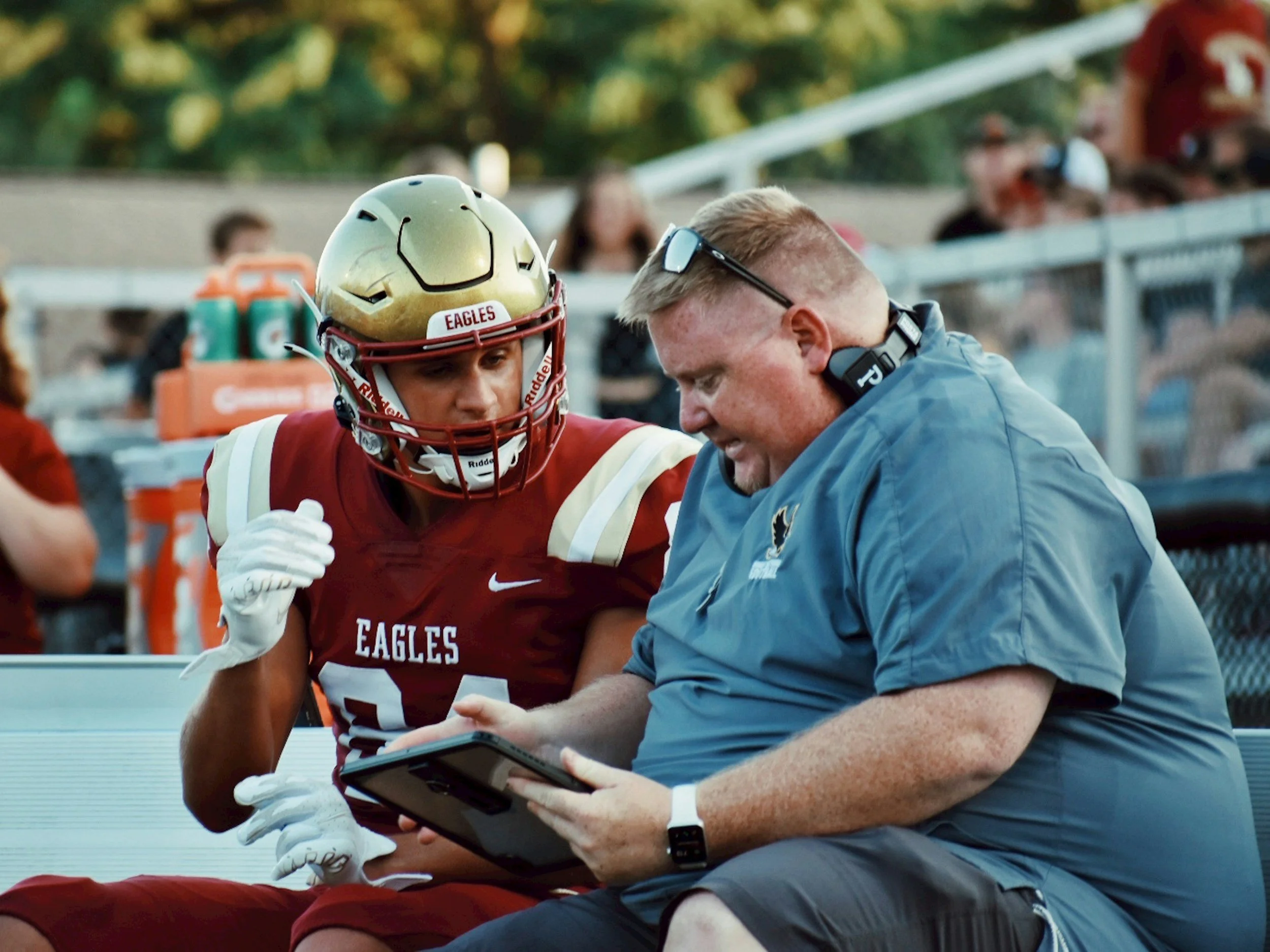
Coaching Philosophy & Core Values
for Leadership and Success
At Respect the Whistle, we believe that good coaching is built on a foundation of strong values and a clear philosophy. Our approach combines fundamental techniques with unwavering dedication to character development, leadership, and respect.
our Core Values
Our coaching philosophy is anchored in three core values: Leadership, Discipline, and Integrity. These values shape everything we do, from building strong foundations in the fundamentals to fostering a positive team culture. We believe that when coaches live and teach these values, they not only build stronger players but also create a community of respect and support around the game.
Leadership
Leadership in coaching is more than strategy—it’s about modeling the behaviors and attitudes we want to see in our players and fellow coaches. True leadership goes beyond making decisions on the field; it’s about guiding athletes to make their own sound choices, face adversity, and strive for excellence both on and off the field. We view leadership as a balance of authority and trust, where the head coach sets the tone and the assistant coaches reinforce it.
-
Leadership is also about unity and respect for the chain of command. We believe that when the head coach takes ownership of all team decisions and the assistants support and uphold those choices, it sends a powerful message to the players. This unified approach shows players the importance of teamwork and loyalty, teaching them that everyone has a role to play in achieving success.
-
A true leader sets the standard through action, not just words. A coach who stays late to mentor struggling athletes, a captain who lifts teammates up after a tough loss, and a parent who models sportsmanship in the stands all show what leadership looks like. Leadership isn’t about power—it’s about influence, accountability, and the willingness to do what’s right, even when no one is watching.
Discipline
Discipline is the backbone of our program. In our view, discipline means commitment to fundamentals, consistent effort, and accountability to the team and oneself. In practice, discipline shows up in the small daily actions that build habits and strengthen character—arriving on time, putting in one hundred percent effort, and always being prepared. We teach our players that discipline is not about perfection but about consistent progress and that the right habits can be just as important as raw talent.
Integrity
Integrity is at the core of everything we do. We believe that respect—both for oneself and for others—is essential in building a lasting, positive impact in sports. Integrity in coaching means upholding a standard of honesty and fairness in every aspect of the game, from player evaluations to game strategy. It also means ensuring that every player, coach, and parent understands the importance of respectful behavior, both on and off the field.
-
Discipline extends to our expectations for both players and coaches. For players, it’s about following the team’s rules and maintaining their commitment year-round. For coaches, it’s about ensuring that every practice is meaningful and every lesson is intentional. By creating a structured environment, we foster a culture where discipline becomes second nature and players feel motivated to uphold their commitments to the team.
-
Success in sports and life comes down to discipline—doing the hard work when motivation fades. It’s the athlete who shows up early for practice, the coach who sticks to a game plan despite pressure, and the parent who teaches their child the value of commitment. Discipline isn’t just about rules—it’s about consistent effort, respect for the process, and the drive to improve every day.
By centering our program on Leadership, Discipline, and Integrity, we create an environment where every player, coach, and parent is encouraged to bring their best to the field. These values don’t just prepare athletes for success in sports; they equip them with the life skills and character they need to succeed in any area they pursue.
-
With integrity as a guiding principle, we make it clear that our conduct serves a higher purpose. Rules are not enforced to appease others but to keep players safe, build character, and maintain the program’s standards. Integrity is a commitment to doing what is right, even when it’s difficult, and it teaches players the importance of taking responsibility for their actions and decisions.
-
Integrity means playing the game the right way, on and off the field. It’s the coach who enforces accountability, even when it costs a win, the athlete who owns up to a missed assignment instead of making excuses, and the parent who encourages fairness over favoritism. In sports and life, integrity builds trust, respect, and a legacy worth remembering.
Fundamentals First: Coaching Philosophy for Success on and off the Field
At Respect the Whistle, Coach Ed’s approach to coaching has always been rooted in a commitment to the fundamentals. He believes that mastering the basics—whether it’s a technique, a mindset, or a team dynamic—is the foundation of success. As such, our philosophy emphasizes a disciplined, physical approach to the game, where effort and preparation are just as crucial as raw talent.
Fundamentals First
This philosophy begins with a simple truth: football is a game of fundamentals. Fundamentals should never be overlooked and must be a part of every practice. Each player’s journey starts with understanding and mastering the core techniques of their position, which build the physical and mental skills needed to perform under pressure. In every practice, players are expected to bring their best effort — because, as Coach Ed often says,
“It doesn’t take one ounce of God-given ability to give one hundred percent effort.”
This commitment to fundamentals extends beyond individual skills to core football principles. Football is a physical game, and generally, the more physical team has the advantage. As such, we prioritize running the ball, stopping the run, and maintaining a balanced passing attack. But we approach these strategies with a simple rule: play physically without sacrificing discipline.
Strategic Decision-Making and Adaptability
A good coach not only knows the fundamentals but also adapts strategy to put players in the best possible position to win. This includes adapting game plans based on the strengths and weaknesses of the team and the opposition. Football is about matchups and creating strategies that make the most of each player’s abilities and each opponent’s vulnerabilities. This may mean adjusting formations, calling plays that capitalize on specific matchups, or developing a defensive plan that targets the opponent’s weaknesses.
Adaptability is also fundamental. It’s important to stay flexible and make adjustments in real time. We encourage players to think critically, work together, and adapt as the game progresses—skills that are just as valuable off the field as they are on it.
Building a
Coaching Team:
Trust and
Responsibility
Every member of the team, from the head coach to the players, has specific roles and responsibilities that contribute to the team’s success.
By adhering to these principles, coaches can foster a team environment where every player, coach, and parent understands the importance of fundamentals, strategy, and respect for roles. This philosophy prepares players to face challenges on the field while developing character and leadership that go far beyond the game itself.
Head Coach
The head coach’s role is to provide clear direction, enforce standards, and make decisions that shape the team’s identity. A head coach must have authority over team decisions and trust in the input of assistant coaches. When the head coach respects the input of his coaching team and leads decisively, the entire team functions more effectively.
assistant coaches
Assistant coaches are the backbone of a successful program. They focus on teaching fundamentals, skill development, and implementing the head coach’s game plan. They’re encouraged to bring their ideas and perspectives to the head coach but to do so in a unified, respectful manner. This approach ensures that all players receive consistent messages, which reinforces both discipline and respect within the team.
players
Players are expected to embody values like loyalty, respect, commitment, and work ethic both during and after the season. They are accountable for their actions year-round because a football player’s commitment doesn’t stop when the season ends. They’re expected to uphold the standards of the team in all areas of life, as a reflection of their dedication to their teammates and the program.





